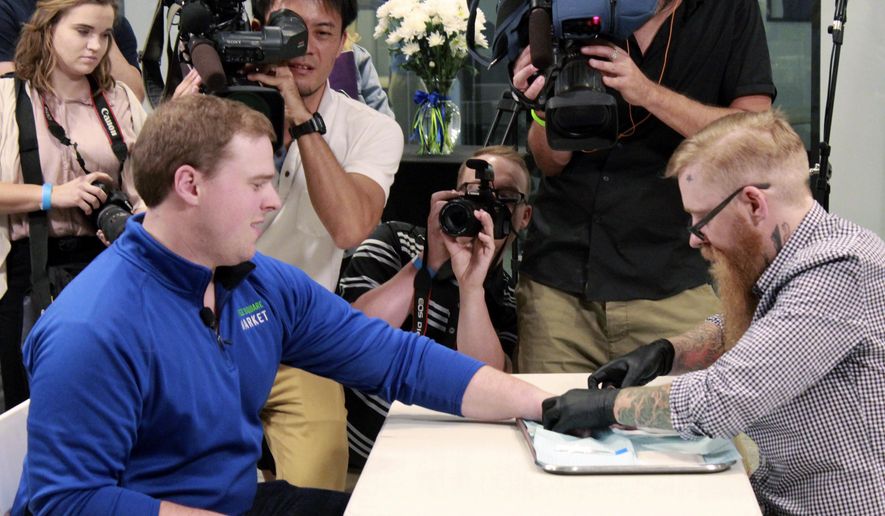OPINION:
Thousands of Swedes have been busily inserting microchips beneath the skin on their hands — for convenience’s sake, for goodness sake.
That’s fine and dandy. For Sweden. But what’s alarming is that the trend has been making a beeline for America’s shores, as well.
“For The First Time, a US Company Is Implanting Microchips in Its Employees,” Science Alert reported back in July of 2017, in a story about a Wisconsin-based snack stall supplier tagging its workers with a radio-frequency identification chip about the size of a grain of rice, in between the forefinger and thumb.
Technology watchers don’t think this will be an anomaly.
“Microchip: You will be chipped — eventually,” blared one USA Today headline, rather ominously, in August of 2017.
A year later, and it was more of the same from The Atlantic, which reported, “Why You’re Probably Getting a Microchip Implant Someday.”
Take notice, privacy-loving Americans.
It’s one thing for technology to be used for inspirational developments, like forging a path to space or opening up ocean floors to sights never before seen.
It’s one thing for technology to be tapped to make great strides in health care, or in national security, or even in police capabilities that don’t run counter to the civil rights.
It’s another thing entirely for creepy surveillance, data collecting and tracking technology to be inserted into willing humans’ hands simply so they don’t have to take four seconds to reach into their pockets for their debit cards, or gym membership identifications, or office keys.
Americans should resist — while we still can.
Let the Swedes have the chip. We’ve got the Constitution.
“So many Swedes are lining up to get the microchips that the country’s main chipping company says it can’t keep up with the number of requests,” NPR reported.
How many?
Between 3,500 and 4,000 so far — a growth rate, that in this technologically savvy, technologically loving country, shows no sign of slowing.
Some use it in place of home keys. Some use it in place of train tickets, as boarding passes. Some use it in place of charge cards, debit cards and other means of making purchases. Whatever the use, the reason is the same: to make life easier, faster, less cumbersome.
But honestly, how burdensome is it really to reach into one’s pocket and pull out a key?
Or swish a debit card across a reader — or even, heaven forbid, count out some cash and change?
Sweden is practically a cashless society; it’s also one of the most advanced when it comes to taking on new technology and rolling it into the public sphere. And the country’s economy reflects its love affair with Big Tech. Skype and Spotify, after all, were founded there. OK to that. The chip may fit; Swedish society may find nothing to fear in microchipping their citizens.
But America is not Sweden. America’s nation of God-given rights and cherished privacies is not one and the same with a welfare state, or with a government tied to a monarchy, symbolic or otherwise.
So think, America, before you chip.
“Pastor: Microchipping Humans Straight Out of Revelation,” CBN News reported, in a headline from July, 2017.
Something to mull; just sayin’. But if not for religious reasons, consider this: Hacks happen all the time. Data breaches, in this technologically driven world, are daily occurrences.
No technology is 100 percent safe from prying eyes. And once we go chip, it’ll be nearly impossible to de-chip.
• Cheryl Chumley can be reached at cchumley@washingtontimes.com or on Twitter, @ckchumley.




Please read our comment policy before commenting.